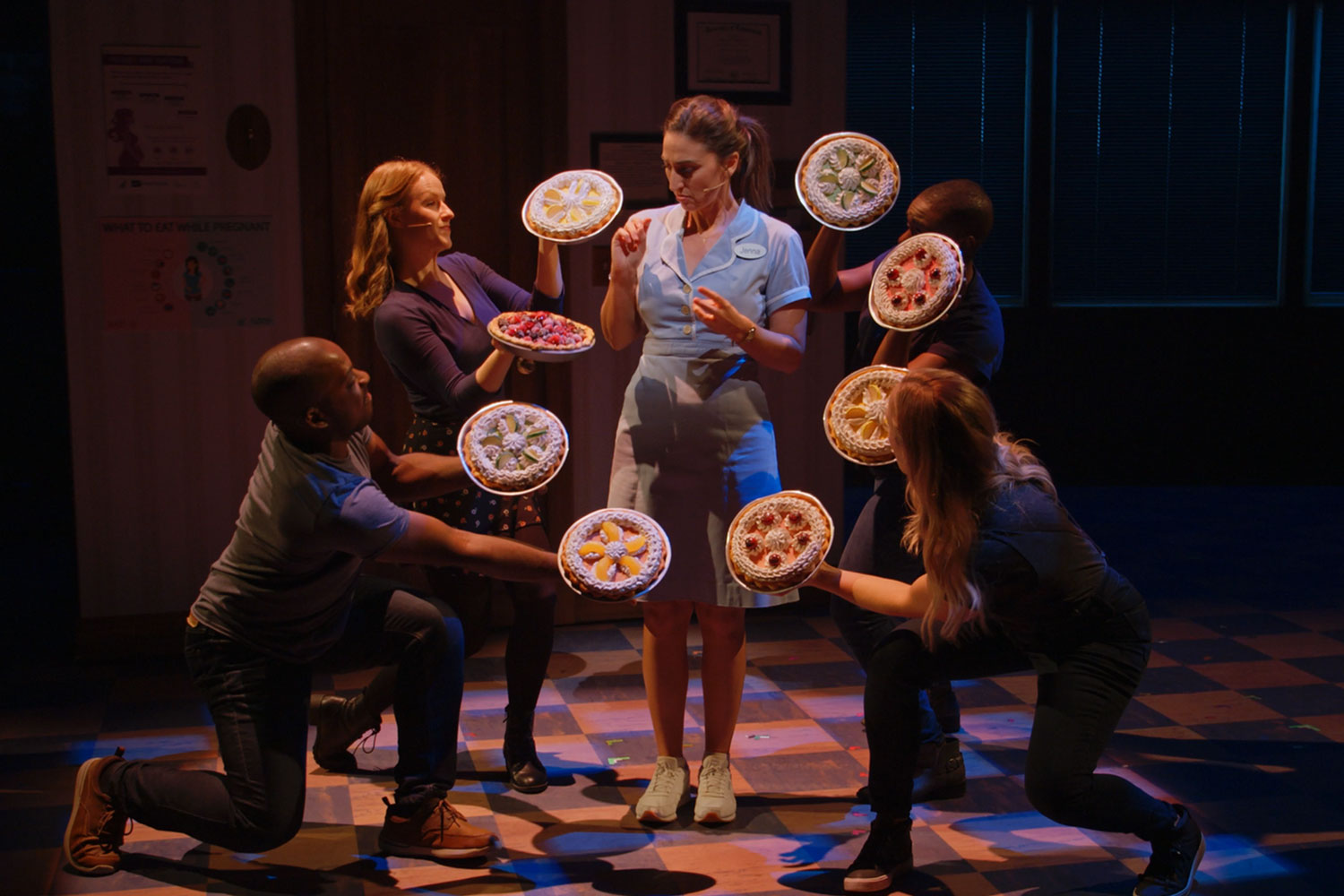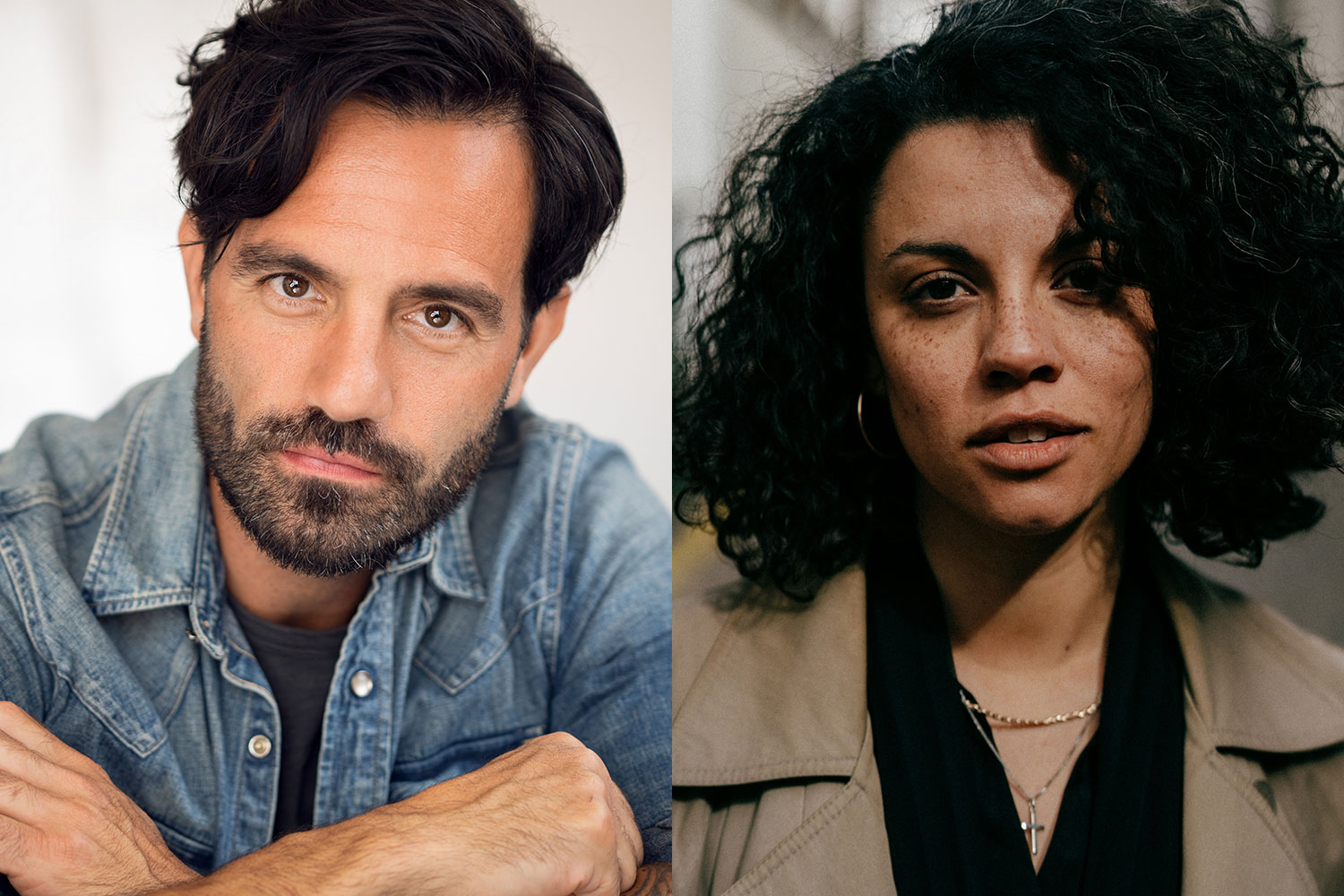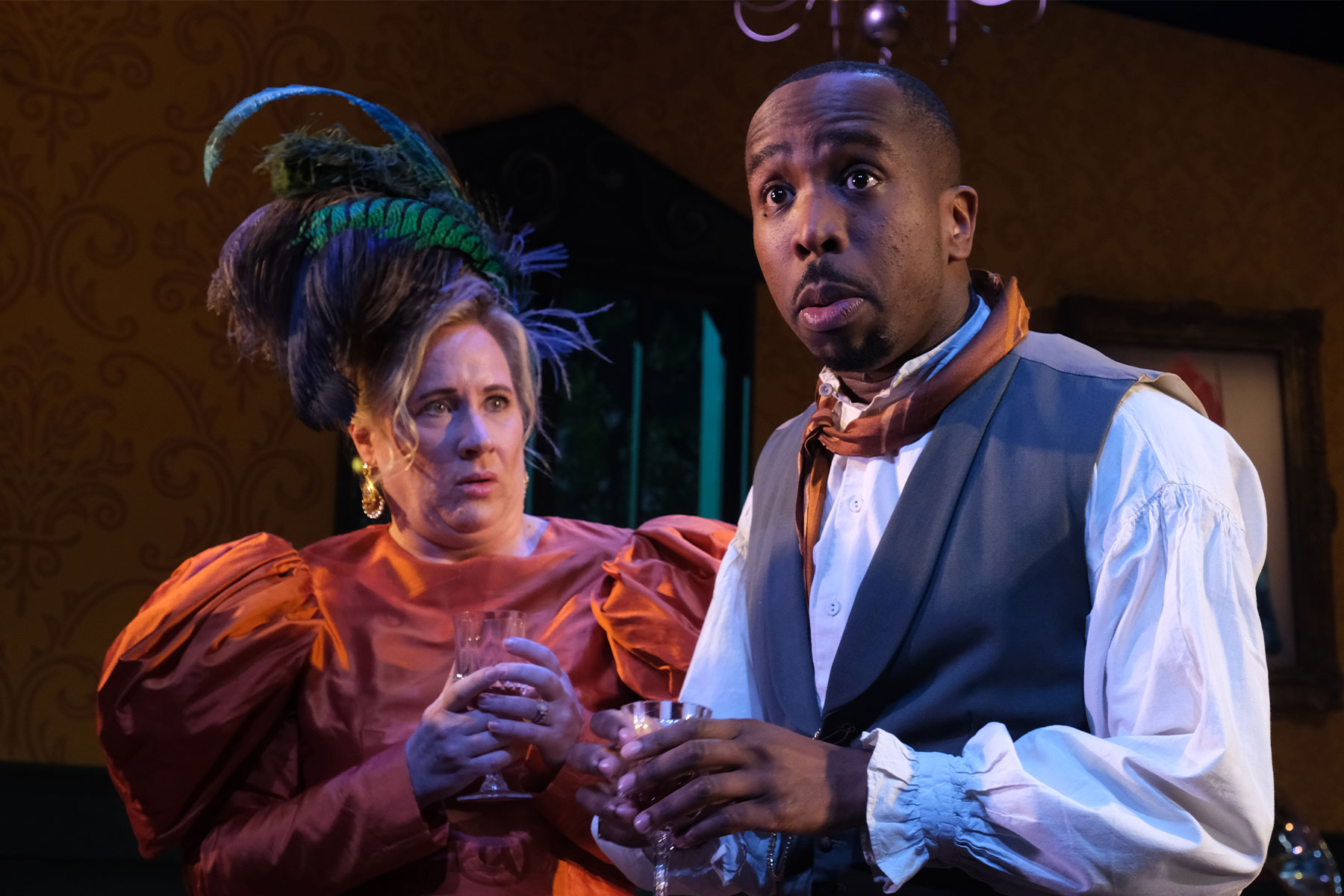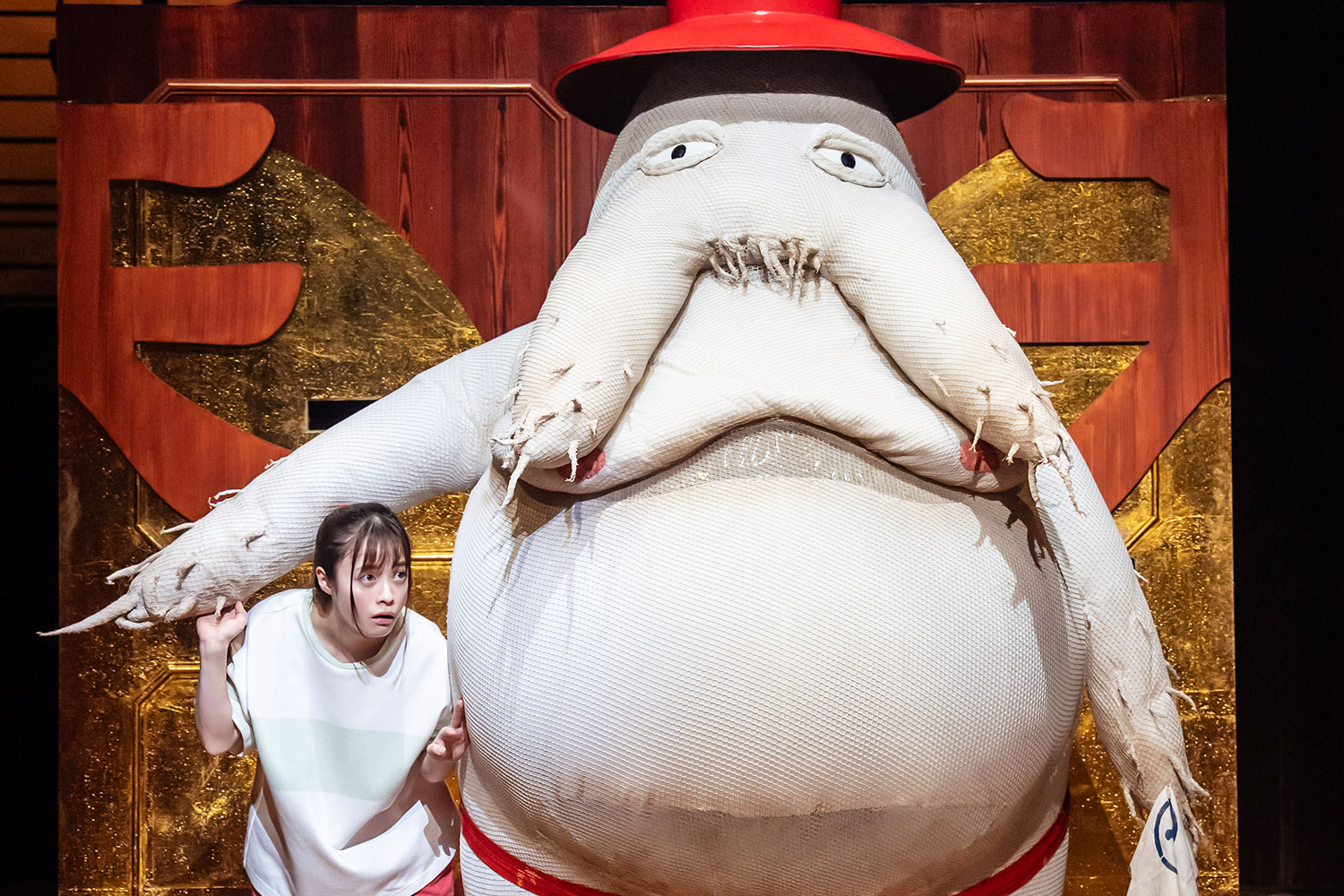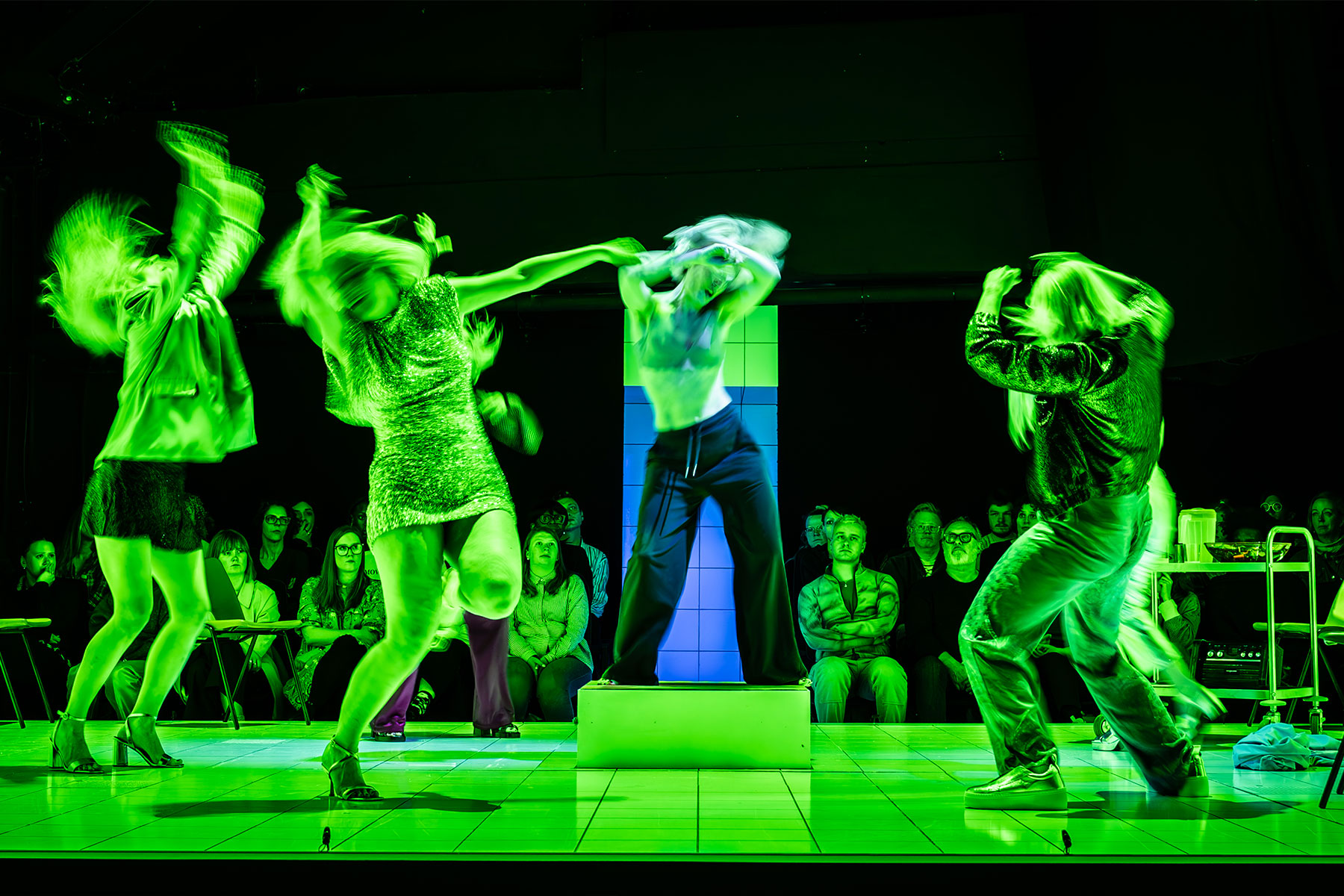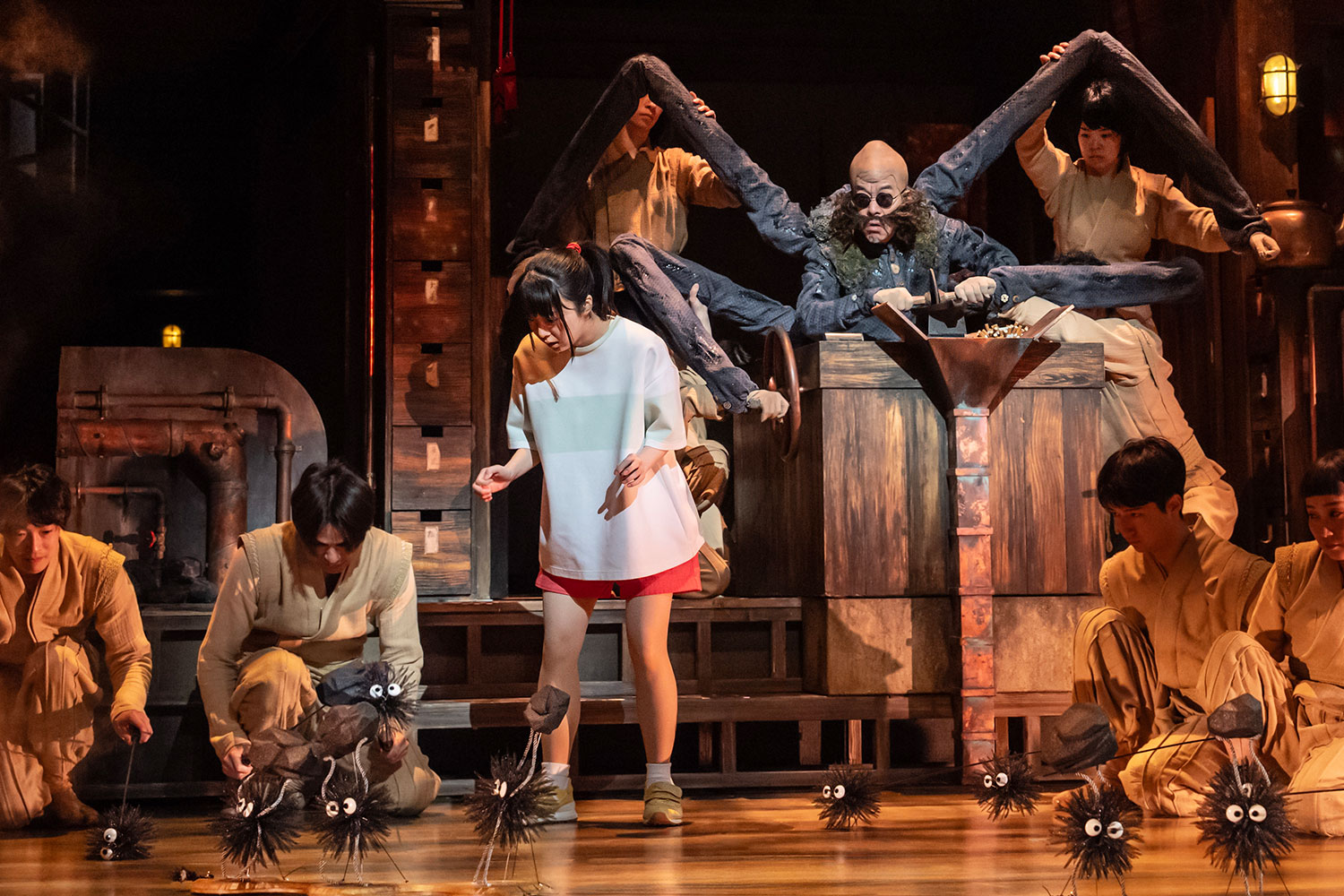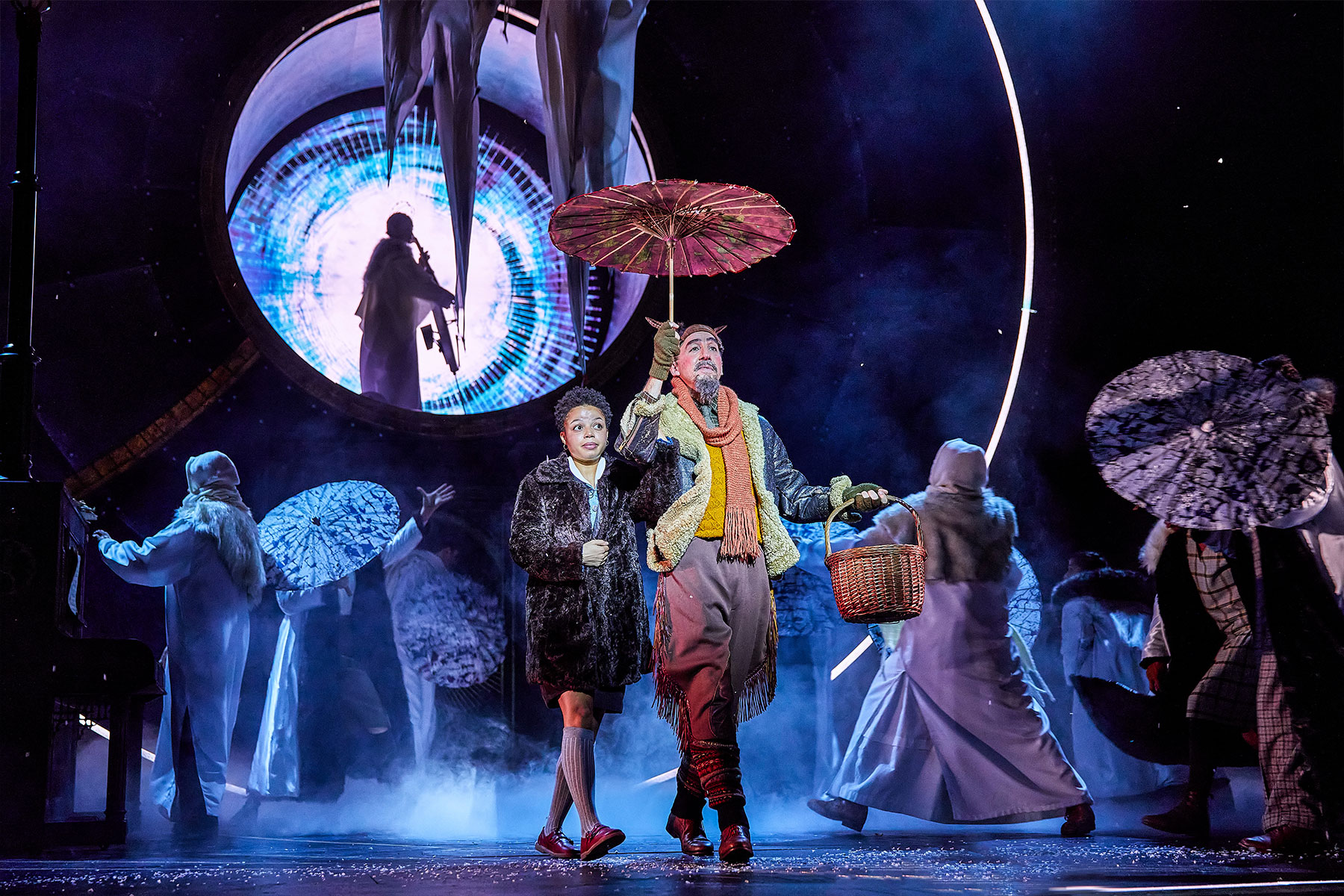Merrily We Roll Along

And like Harold Pinter‘s Betrayal (1978), the story is told backwards, so that we start at the end and finish at the beginning, when three new friends – composer Frank Shepherd and writers Charley Kringas and Mary Flynn – scan the night sky as Sputnik revolves in 1957 and the world changes for “Our Time.”
The original Hal Prince production ditched the changing period costumes in favour of T-shirts, and I’ve seen that treatment work brilliantly in a student version. Friedman and designer Soutra Gilmour do the much harder thing of moving backwards with the times in fashion and furniture. They manage this without making everything look clumsy and laboured.
The approach pays great benefits in such scenes as the NBC television studio where Charley (Damian Humbley) hogs the interview with his scathing attack on his friend’s sell-out, doing his money better than his music; or with the in-crowd in 1962 Manhattan acclaiming Andy Warhol, Kurosawa and “gestalt” in Tim Jackson‘s hilarious black and white ballet, like a mechanical throwback to John Cranko.
But it’s not just career choices. There are the personal lives, too, and Jenna Russell‘s Mary, first seen as a fall-over drunk, acid-tongued literary critic, glows with unreciprocated devotion to Mark Umbers‘ handsome Frank, who loses his lovely wife Beth (Clare Foster) in a messy divorce case involving Josefina Gabrielle‘s ruthless Broadway star Gussie Carnegie.
It’s Gussie’s determination to harness the boys’ little show into a big one of her own that yields the musical’s key statement – in a score of consistently shimmering wit, tenderness and complexity – as a melodically plaintive duet is trampled over in a brilliant ensemble of vulgar, rhythmic appropriation.
We’ve already seen the consequences: the finale to “Musical Husbands” on Broadway that comes up here as a second act opener with feathers, tights and matelots, a backward step from the much earlier revue sketch (seen later) about the Kennedy family tree.
The band is boxed in at the side, Catherine Jayes supervising Jonathan Tunick’s great orchestrations (the sound balance and microphoning are first-rate) and the show is given a classy sheen by David Hersey’s first London lighting in ages and by Jason Carr‘s new dance arrangements.
I’m not that keen on Frank’s young son tugging the heart strings in the last scene, or trying to, but the rest of the cast is just fine and dandy, with Joanna Woodward and Zizi Strallen chipping in effectively with Martin Callaghan and Amanda Minihan as Beth’s adamantly unimpressed parents from Texas; who’d want to live in New York, they cry, beating a hasty retreat from their son’s first night triumph?



